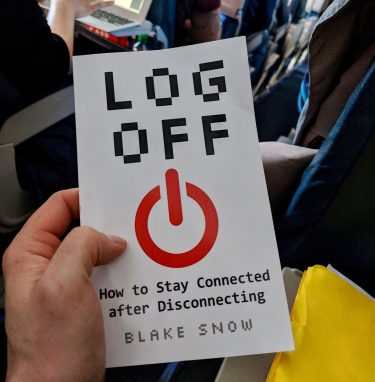How dopamine loops ruin our smartphones
The following was taken from Log Off: How to Stay Connected after Disconnecting

Remember that time you went online in search of a simple answer, only to find yourself, two hours later, clicking on links that had nothing to do with the original answer you sought?
That’s a dopamine loop. It’s the scientific reason we end up online more than we plan to. It explains why we can’t put our smartphones down. It explains why some people neglect real life in favor of virtual life. And it leads to compulsive disorders, similar to those who are addicted to chemical stimulants and depressants such as cocaine, caffeine, methamphetamines, nicotine, and alcohol.
“Dopamine starts us seeking, then we get rewarded for the seeking, which makes us seek more,” explains Dr. Susan Weinschenk. “It becomes harder and harder to stop looking at email, texts, web links, or our smartphones to see if we have a new message or alert.”
Worst still, research shows the dopamine system is bottomless. Since it doesn’t have satiation built in, dopamine keeps demanding “more, more, more!” And it goes absolutely bonkers when unpredictability is introduced—say, an unexpected email, text, or app alert from who knows what and who knows whom. Surprise! It’s just like Pavlov’s famous and classically conditioned dogs, for those who remember your introductory college psychology course.
“It’s the same system at work for gambling and slot machines,” explains Weinschenk. “Since dopamine is involved in variable reinforcement schedules, it’s especially sensitive to dings, visual alerts, or any other cue that a reward is coming, which sends our dopamine system raging.”
And so we stay online and on our phones longer than anticipated. We forgo our offline lives. It’s science.
